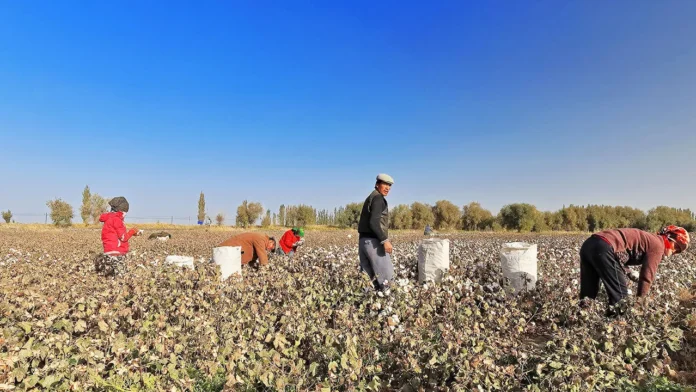Washington [US], December 21 : Chinese exports of agricultural products such as tomatoes, chilli peppers, and marigolds from the Xinjiang region are tainted by forced labour and land transfers from Uyghur peasants to Chinese businesses, as highlighted by a new research report.
According to Radio Free Asia, the 136-page report, authored by Adrian Zenz and I-Lin Lin from the Victims of Communism Memorial Foundation, highlighted the forced assimilation and political indoctrination of Uyghur workers involved in the cultivation of these products.
The report also exposes the role of major Western companies, including Kraft Heinz, Nestle, PepsiCo, Del Monte, McCormick, Unilever, and L’Oreal, which import these goods. The goods often enter supply chains through intermediaries, obscuring their origins. The report identified 72 international companies and 18 Chinese firms that either have production in Xinjiang or are linked to the region’s agricultural supply chains.
Adrian Zenz, one of the researchers, told Radio Free Asia that the extensive use of forced labour and coerced land transfers in Xinjiang is directly serving the Chinese government’s political goals, including the long-term transformation of the Uyghur population. These practices are also contaminating global supply chains.
Zenz emphasised in an interview with RFA, “It means that we have a much bigger system of forced labour and forced land transfer that is affecting many agricultural communities in Xinjiang and is directly serving the political goals of the regime to achieve political long-term transformation of these populations and taint the supply chains as a result.”
Among the implicated Chinese companies are COFCO Tunhe Tomato, Xinjiang Chalkis (which processes tomatoes and fruits), and Chenguang Biotech Group, a high-tech firm specialising in plant-based ingredients. These companies have subsidiaries in the United States and Europe, further complicating the traceability of their products.
The report also draws attention to the ongoing human rights abuses in Xinjiang, including the mass detainment of Uyghur Muslims and the use of forced labour. It states that Xinjiang is home to the world’s largest state-imposed forced labour system, with up to 2.5 million Uyghurs and other ethnic minorities at risk of coerced labour.


